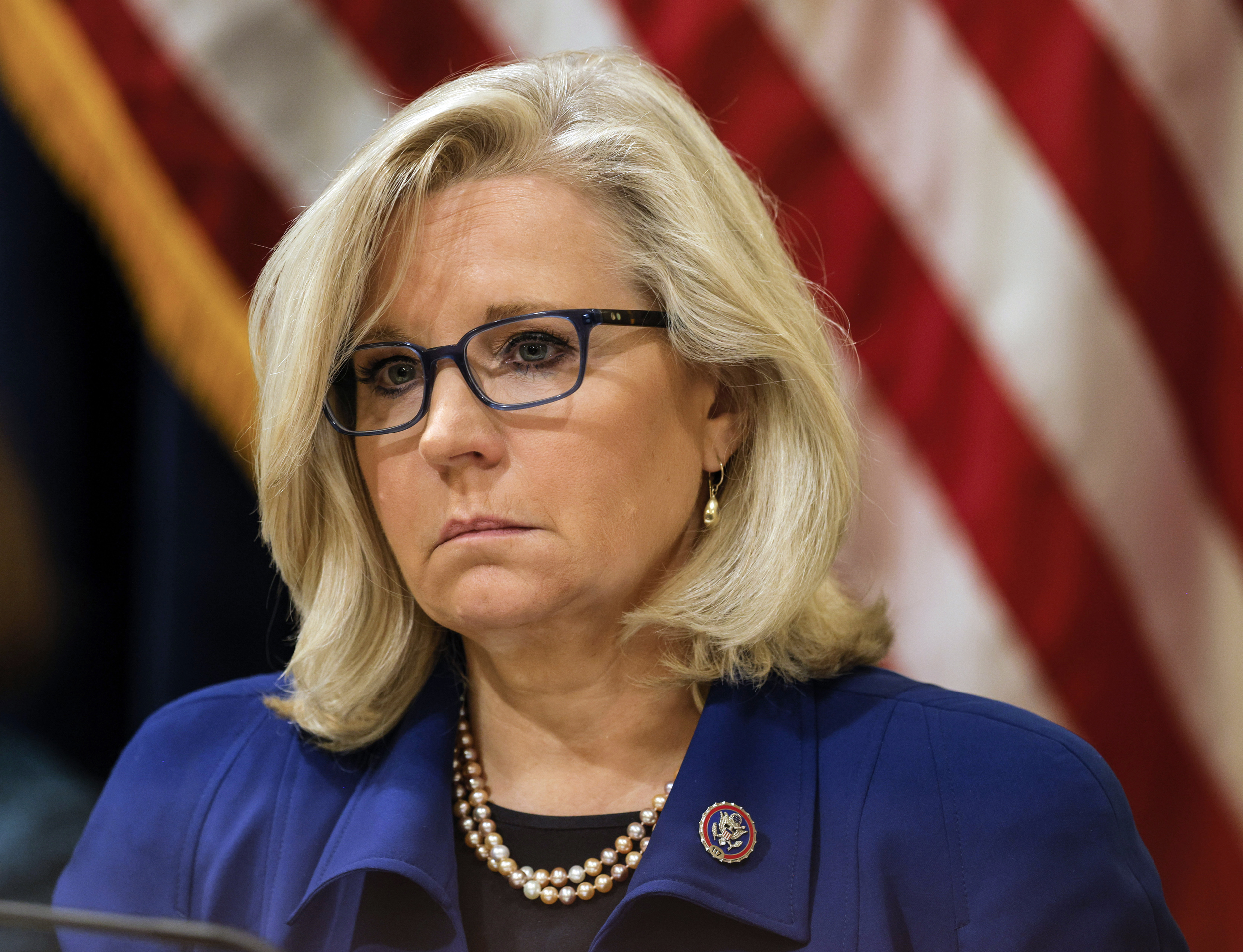Politics
Liz Cheney Gets Brutal Legal News After Bombshell Revelation

Former Wyoming Congresswoman Liz Cheney is facing serious legal and ethical questions after new revelations surfaced about her involvement in the January 6 Capitol breach investigation. As the vice chairwoman of the House committee looking into the events surrounding the January 6 breach, Cheney reportedly used an encrypted messaging app to communicate with a key witness.
According to evidence obtained by congressional investigators and Just the News, Cheney communicated with witness Cassidy Hutchinson via the encrypted app Signal. The messages, exchanged on June 6, 2022, were uncovered by Rep. Barry Loudermilk (R-GA), chairman of the House Administration oversight subcommittee. This discovery has prompted renewed scrutiny of the Democrat-led investigation, raising red flags about the integrity of the process.
At the time of these interactions, Hutchinson was being represented by attorney Stefan Passantino. Passantino told Just the News that he was unaware of any contact between his client and Cheney, and that he did not give his approval for the communication. He only found out after Just the News reached out to him directly about the issue.
Cheney’s relationship with Hutchinson evolved as the former White House aide became a key witness in the January 6 hearings. According to the report, Cheney was initially hesitant to directly engage with Hutchinson because of ethical concerns related to her legal representation. However, this changed when Hutchinson, who was preparing for her third deposition before Cheney’s committee, initiated contact with Cheney on June 6, 2022. This eventually led to a phone call, with Hutchinson sharing advice from her attorney without his consent.
The direct communication between Cheney and Hutchinson culminated in Hutchinson parting ways with her lawyer. In her memoir, Hutchinson admitted that Cheney played a crucial role in helping her secure new legal representation. This support, Hutchinson claimed, allowed her to fully engage with the committee’s work without legal fees, describing the assistance as giving her “hope.”
This maneuvering paved the way for Hutchinson to alter parts of her testimony before the committee, including making explosive allegations about former President Donald Trump. Hutchinson’s testimony regarding Trump’s alleged attempt to grab the steering wheel of his presidential vehicle on January 6 was one of the most sensational claims to emerge from the hearings but has since been widely debunked. Despite being contested by other witnesses, these claims made it into the committee’s final report, cementing Hutchinson’s role in the investigation.
Legal experts are now questioning whether Cheney violated her obligations as an attorney and whether she crossed ethical lines in dealing directly with a represented witness. Former U.S. Department of Justice official Jeff Clark weighed in on the situation on social media, suggesting that Cheney may have violated bar rules, which could put her license in jeopardy.
“What do we have here? This appears to be a straight-up DC Bar Rules violation by Liz Cheney,” Clark tweeted in response to the report by Just the News.
What do we have here?
This appears to be a straight-up DC Bar Rules violation by Liz Cheney. https://t.co/3bks1fSA19
— Jeff Clark (@JeffClarkUS) October 15, 2024
This comes at a time when Cheney’s political future is uncertain, following her departure from Congress after losing her re-election bid. Once a prominent figure in the Republican Party, Cheney’s involvement in the January 6 committee and her sharp criticism of Trump have alienated many in the GOP.
Cheney’s alleged communications with a represented witness involve potential violations of ethical standards, particularly for attorneys. As a licensed lawyer, Cheney would be expected to adhere to the American Bar Association (ABA) Model Rules of Professional Conduct, which govern attorney behavior, especially when dealing with represented parties. Under the ABA’s Model Rules, often referred to as the “no-contact rule,” an attorney is prohibited from communicating directly with a person they know to be represented by another lawyer in the matter, without the consent of that lawyer. The primary purpose of the rule is to ensure that all parties have fair legal representation and to avoid any undue influence or coercion.
In Cheney’s case, if she indeed communicated with Hutchinson, who was represented by attorney Passantino at the time, without Passantino’s knowledge or consent, she could be in violation of this rule. This is particularly problematic given that the communications reportedly occurred just before Hutchinson changed her testimony—a move that had significant implications for the investigation into the January 6 Capitol breach. If Cheney’s actions are proven, she could face disciplinary action from the bar, including sanctions or even suspension from practicing law, depending on the findings. Violations of these ethical guidelines could also open Cheney to potential lawsuits or complaints to state bar authorities, further complicating her legal standing.
On Tuesday, Loudermilk said, “Our investigation has uncovered unethical back-channel communications between former Rep. Liz Cheney and Cassidy Hutchinson just before Hutchinson changed her sworn testimony. Not only is communicating with a witness without their attorney present unethical, but it also undermines the integrity of an investigation.”
“As a licensed attorney, Liz Cheney would have known the ethical and legal issues with this communication,” Loudermilk continued. “Clearly, Cheney did not want Stefan Passantino representing Hutchinson. Shortly after Cheney and Hutchinson began communicating, Cheney convinced Hutchinson to fire Passantino and arranged for a new attorney to represent Hutchinson pro bono.”

